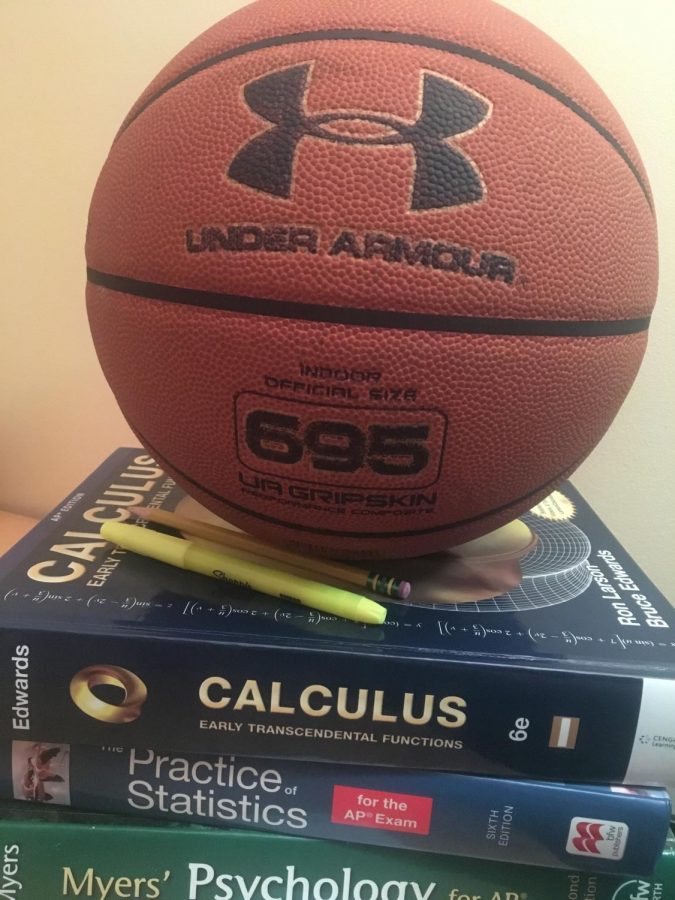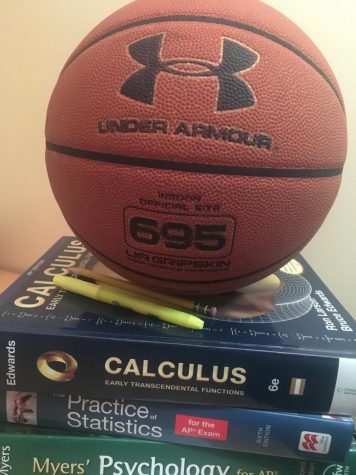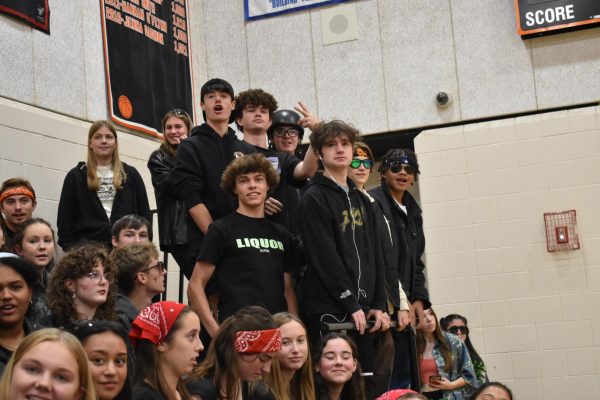College Athletes: Students or Employees?
December 4, 2018
The NCAA currently generates $11 billion in revenue every year, more than 30 NHL teams and 25 of the 30 teams in the NBA. With coaches locking down million dollar contracts and schools building professional grade facilities for their sports teams, many feel that college sports, especially Division I, have lost their amateur nature. In fact, many are now arguing that college athletes should be paid. Others think that scholarships are the best means of compensation, and that the ability to play high level sports and learn at prominent universities is the best reward that their is. In our opinion, because of the money that Division I athletes bring in and the amount of time that they put into their respective sports, college athletes should be compensated in some manner. However, the best way to do this may not just be giving them a salary.
To begin, let’s first look at the amount of money that Division I sports bring in for their universities. The most profitable sport, football, generates $31 million every year on average for Division I schools, according to Business Insider. The second most lucrative sport is basketball, which makes on average $8 million for schools. However, the NCAA March Madness tournament alone generates $1 billion in revenue from media rights fees, ticket sales, corporate sponsorships and television advertisements. Additionally, some of the highest paying coaches in college sports are making up to $11 million annually. What is bothersome to us is that the college athletes who bring in all of this money get little in return. People may argue that they are compensated through scholarships and a good education, but the number of scholarships per program is limited, and not everybody can profit. Some may argue that these athletes will get their pay in the long run when they go on to play professionally, but of the 91,775 men who played NCAA basketball and Football in the 2016-2017 school year, only 303 were drafted into the NBA or NFL. This is one of the biggest reasons we feel Division I athletes should be paid.
Another large factor that supports the compensation of college athletes is the sheer amount of time they put into their respective sports. According to Forbes, “The typical D1 College Football Player devotes 43.3 hours per week to his sport, 3.3 hours more than the typical American job.” In our opinion, this extensive time commitment prevents players from having a job and being able to devote their full attention to their studies. Additionally, many schools have resorted to shortcuts, setting up fake classes for their athletes to pass and boost their GPA. One recent scandal at UNC involved a class where the only requirement to pass was a one paragraph essay. Ipswich soccer coach Greg Scruton, who played Division III soccer at Gordon College, believes that the time commitment actually works out in the athletes favor. “I think [the time commitment] could be quite a bit,” Scruton said, “but also that’s preparing you for the real world. When you’re working 45 hours a week for a job, plus you have a family and so forth, it is preparing you for other things in life.” Ipswich High School senior Katherine Noftall, who is going on to play Division ll softball at Bentley University, also is not fazed by the immense time commitment. “I am not worried about balancing academics and athletics in college,” she said. “I have friends that are playing sports in college right now and they all say that they think that playing a sport has actually helped them balance and organize their lives.” However she also added: “I do believe that Division I athletes prioritize sports over academics and that was part of my decision to play Division ll softball.” It is our belief that the time commitment can come in handy for time management but only to a point, and that especially at Division I schools, it forces players to make some sacrifices in their academic experience. As a result, they will not be able to have access to the full range of clubs, classes, and activities that the university has to offer.
While we do believe that college athletes should be compensated for their work, we think that the act of doing this is more complicated than just giving them a salary. Scruton agrees that the best means of compensation should not be “directly with a paycheck.” It is his belief that players can be adequately compensated with scholarships and a great education they would not have received without sports, and that they also have access to jobs through the athletic center. He also questions, “Of that money that is made [through college sports], where is it going? Does this money go to nicer facilities, new uniforms, food for the athletes etc., that ultimately benefits the athletes?” We are in agreement with Scruton, and think that writing players a check is not the quick-fix solution that many make it out to be. Many players may not be making the best decisions with their money because they don’t have the proper education, and could be better served if the money was kept in the hands of the University. Another idea proposed by Mrs. Yeannakopoulos, former Ipswich Middle School teacher and widow of a longtime college sports enthusiast, was to save the money for them until after they graduate so that they are given the incentive to stay in school. Additionally, if the revenue that the athletes are generating is being invested back into the needs of the team and the school, this should help the athletes benefit in the long run and will serve more people for years to come.
In conclusion, Division I college athletics has evolved into a billion dollar industry, and the role that college athletes play within this system must be reexamined. While many argue that they will always be students first, the sheer amount of time that they put into their sports and money that they bring in sets them apart from their classmates. As to how the athletes should be compensated, we are in agreement that scholarships can be very beneficial for both parties, but that a higher standard needs to be set in place for academics among athletes where they can’t just cheat the system in order to get on the fields. More scholarships for players, as well as jobs through the athletic center and an education that sets them up for a successful future is the best. If the proper steps are taken to look after the athletes well-being and education and they are compensated properly and prepared adequately for the future, everybody can be set on a level playing-field.









